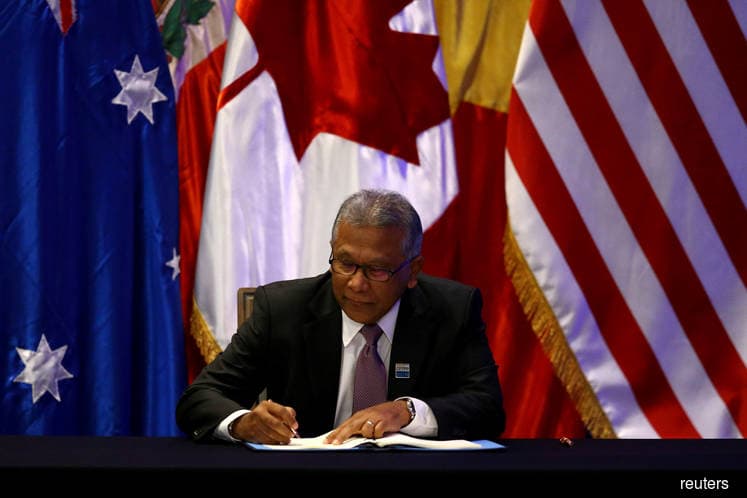
KUALA LUMPUR (March 16): Malaysian companies should start developing strategies to reap the benefits unlocked by the new Comprehensive and Progressive Agreement for Trans-Pacific Partnership (CPTPP), before it comes into force at end of the year, HSBC Malaysia said.
HSBC Malaysia commercial banking head Andrew Sill said businesses can review their current trade relationships to identify the gaps and understand where is the greatest potential to create new ties and tap into some of the fastest-growing consumer markets.
In a statement today, Sill said they should then look at their current supply chains, whether regional or global, and map that against the CPTPP links.
“Those who work now to understand how the deal could impact their business model will reap the greatest benefits in the future. This is not only important to companies based in one of the member countries, but also to any firms doing business in the region,” he added.
Following that, an in-depth understanding of the CPTPP and its impact on tariffs for each group of goods and services would be critical for firms to reassess their pricing strategies and maintain their competitive advantage, Sill said.
“The CPTPP agreement is also a remarkable piece of diplomacy. This single pact, ushering in higher standards and economic benefits, covers emerging and advanced economies, spanning four regions.
“It is a big step for multilateralism and international collaboration, and can serve as an example for further pacts. So while the path towards ratification could still be bumpy, the signing of the CPTPP tells us that trade liberalisation is alive and kicking, something all of us who believe in trade as a force for good, should celebrate,” he added.
Last week, Sill said about 63% of Malaysian businesses expect a positive impact from the CPTPP, signed between 11 nations comprising Australia, Brunei, Canada, Chile, Japan, Malaysia, Mexico, New Zealand, Peru, Singapore and Vietnam.
It also has the potential to expand as Taiwan, Thailand and South Korea have expressed interest in joining, Sill said, adding that the gains could be bigger.
The rallying of Indonesia, South Korea, the Philippines, Taiwan and Thailand would generate US$486 billion in total income gains for member economies which is bigger than those the original TPP would have delivered — which included the US.
“Perhaps the biggest benefit, the deal will eliminate most tariffs between member countries, and where tariffs are maintained, cuts will be significant. For instance, the tariff on New Zealand beef exports to Japan will fall to 9% from 38.5% today, when the deal enters into force,” Sill said quoting studies.
Collectively, the improvements meant some 500 million people in 11 countries would have access to greater and cheaper choice of goods and services.
“Combining over US$10 trillion of economic output — about 13.5% of the world’s GDP — these nations offer bright prospects to the business community too,” he added.